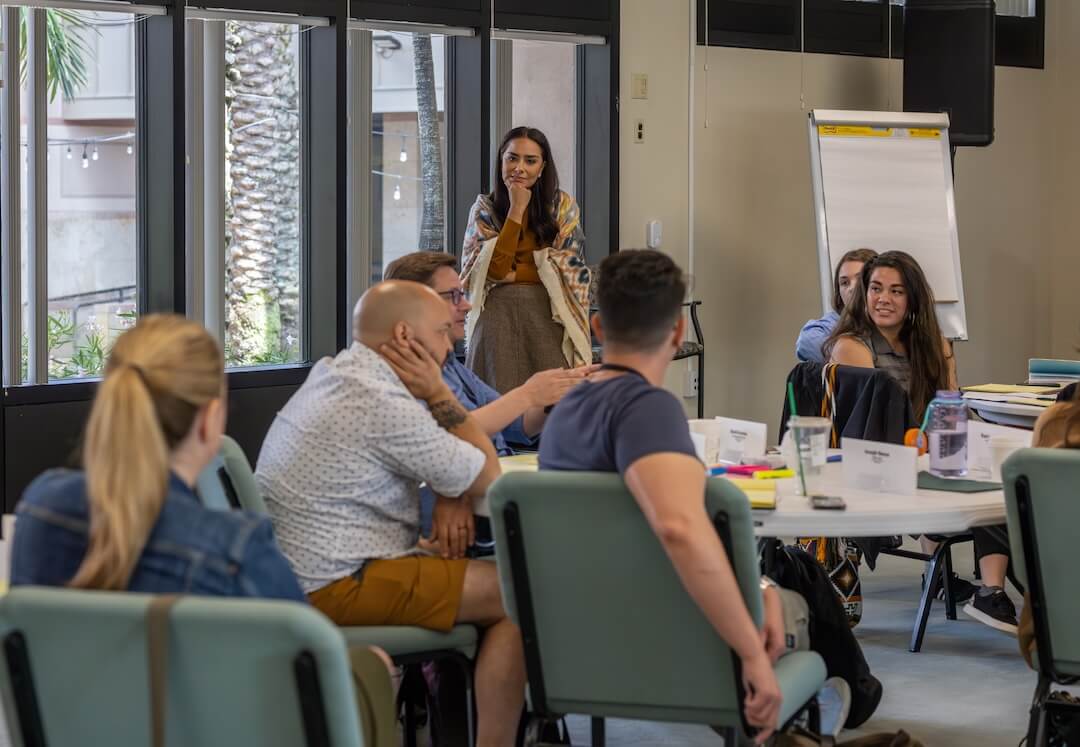In the absence of clarity and a rash of misinformation, the COVID-19 pandemic has created a breeding ground for prejudice against minority groups across the globe.
This isn’t entirely unexpected. A 2019 Harvard study found a correlation between infectious disease rates and explicit racial prejudice.
“If you’re living in a region with higher infectious diseases…you’re going to see more intergroup tensions and racial prejudice occur in these kind of environments,” said Brian O’Shea, one of the researchers speaking to NPR’s Shankar Vedantam.
Historians have found coronavirus comparisons in the persecution of Jews during the Black Plague. Hellenic scholars have pointed to the ancient Greek tradition of the “Pharmakos” whereby a single person was selected to embody the evils of society before being sacrificed to the gods.
In the #CoronavirusFacts Alliance database, Muslims stand apart from other major religious denominations. This is a reflection of the number of fact-checking networks contributing work from India and the ethnic tensions there that preceded the spread of the virus. But the volume of Islamic references also illustrates how fear amplifies prejudice.
[the_ad id=”667826″] [the_ad id=”667872″] [the_ad id=”667878″]
When the database was first assembled in late January, fact-checks about Muslims began with a series of debunks about false cures. In late January, Agence France-Presse in India debunked a claim that an Islamic absolution ritual could protect you from COVID-19. A month later Indian fact-checking network Fact Crescendo debunked a claim that millions of Chinese citizens were converting to Islam because they believed that no Muslims had contracted the virus.
However, on March 23, right before India’s lockdown, the tone of fact-checks changed to largely blame Muslims for spreading the virus. This is around the time the Muslim missionary group Tablighi Jamaat was accused of violating India’s ban on large gatherings for hosting and housing 1,500 of its members in New Delhi. The group argued it had been forced to shelter foreign visitors after India went into lockdown on March 24.
The most common hoaxes blaming Muslims for India’s coronavirus outbreak have been out-of-context videos of young men licking plates, Muslim’s praying on rooftops in close quarters, and claims that Muslims were spreading infected paper money. All of these have been debunked.
Anti-Muslim sentiment connected to COVID-19 is likely a continuation of simmering prejudice in India against the minority religious community. Last December, India’s Parliament omitted Muslims from its amended citizenship law that created a path for undocumented religious minorities. There were widespread protests against the new law in December followed by February counter-protests in New Delhi that left 38 dead.
[the_ad id=”667826″] [the_ad id=”667872″] [the_ad id=”667878″]
COVID-19 has inflamed fears of outsiders across the globe. In South Korea, members of the Shincheonji Church of Jesus were publicly ostracized after an outbreak of COVID-19 was linked to the group. Misinformation in China led to the quarantining of African residents fearing they had the virus. In Croatia, the fear of migrants inspired a hoax that Prime Minister Andrej Plenkovic was opening the country’s borders during the pandemic.
In the United States, the FBI put out a warning in March of a potential surge in hate crimes against Asian American because of fears from COVID-19. In April, the Asian Pacific Policy and Planning Council announced it had received 1,500 reports of racist incidents related to COVID-19 in four weeks of collecting data.
The World Health Organization warned governments and the media in February against stigmatizing specific groups. The warning suggested that prejudices could harm us all.
“This can drive people away from getting screened, tested and quarantined. We recommend a ‘people first’ language that respects and empowers people in all communication channels, including the media,” the statement said.
Harrison Mantas is a reporter for the International Fact-Checking Network covering fact-checking and misinformation. Reach him at hmantas@poynter.org or on Twitter at @HarrisonMantas.







